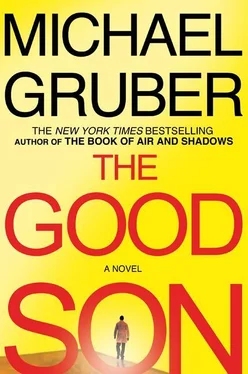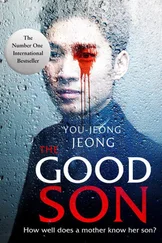She stayed there for over an hour, going through her options. The main thing in her favor was that she was right. Yes, she had cut corners, and the business about roping Borden into looking for SHOWBOAT and Ringmaster was highly irregular, but agencies spied on one another in various ways all the time, and okay, she had violated security clearance protocol, but wasn’t this a special case? She just might be able to make the argument. Suppressing the Paidara intercept was perhaps an actual misdemeanor, but she could not imagine that anyone would come down hard on her for that, if they even knew about it. And, most significantly, she was right; there was no bomb plot, and therefore the location of the fictitious bombs was a nullity, disinformation rather than intelligence. It wasn’t as if she had compromised national security in any way. Perhaps a bit of a cowgirl, was Ms. Lam, inclined to go off on her own, but that was not entirely a bad thing in the intel game. Looked at positively, it might even be described as flair. After all, there was Harry Anspach. In any case, Anspach would understand, yes, and Morgan wouldn’t dare come down too hard on her, having himself taken sexual advantage of a female subordinate and so forth, not a scandal NSA wanted to get into.
She drove back to NSA, angry with herself for the momentary panic but feeling confident that she would be able to brazen it out. She wondered briefly what had happened to Borden and then dismissed the thought. Borden was an adult with a million-dollar skill set. He would be fine, whatever the government chose to do. Again, it wasn’t as if they had compromised national security.
She parked and walked through the lot to her building. There was a black car parked at the entrance. It had its rear door open and a couple of men in suits were standing in the road, watching her approach. She was composing a smile on her face when she recognized that they were the same two men who had been studying her in the parking lot yesterday, the ones who hadn’t smiled back. They didn’t smile back this time either. Instead, they flashed their ID: NSA Office of Security. Then they ushered her into the black car and out of her life.
A t dawn, before the azan has sounded for the Fajr prayer, Bahram Alakazai sweeps into the prisoners’ room with his usual guards and announces that an important al-Qaeda leader, Khalid ibn Hassan al-Zaydun, has been killed by an American missile strike, along with twenty innocents, as a result of which there will be an execution that day at noon. Before that, the people will gather to hear the lies of the infidels and apostates refuted by those who know the true word of God. He speaks for some time. When he leaves, Sonia asks Manjit what he thought of the speech and the man.
“I thought he was needlessly prolix and vehement,” replies the Indian. “Why bother making such a passionate speech to his victims? We are certainly unlikely to convert to his way of thinking, and he need have no concern for what we think. I believe the real audience was his Praetorian guards.”
“I believe you’re right,” says Sonia. “He has the sound of a man unsure of his authority.”
“Your plan is working, then.”
“There is no plan. I told you already, people come to me and I help them. If Alakazai came to me I would try to help him too.”
“Do you think you could? He’s a true believer, and in my experience true believers are essentially unreachable by ordinary therapeutic means. They don’t suffer. Every setback or difficulty is projected onto others or onto the supposed enemy. Any offered help would appear as an assault on the perfection of his interior constructs, and we would undoubtedly see an abreaction, which, given the situation, might be personally dangerous.”
She looks at him and sees the sly smile on his face. “Yes,” she says, “and wouldn’t it improve therapeutic practice immensely if all therapists were held hostage by heavily armed patients? It would at least limit the power games we so often play. But no, I think our host is beyond my help. It will require a miracle to penetrate the armor of his righteousness.”
“And are you preparing such a miracle?”
“Manjit, what a conspirator you’ve become! Always seeing plots, with me in the center. Karl-Heinz is the same. Frankly, I almost wish there was some secret scheme to get us out of here, because I fear that the most likely outcome is that Alakazai will make a holocaust of all of us at once to reestablish his bona fides among his more bloodthirsty troops.”

Before long these troops appear and once again herd the prisoners against one wall of the room, while others move the charpoys against two other walls, leaving the wall with the door in it clear. Sonia notices that Idris and the handsome man whom they had seen before Cosgrove’s execution are seated on the wall opposite from where Alakazai sits, not in the seats of honor at his side where they had previously been placed.
From Sonia’s right comes a whisper: Amin. “I see we have a full house again. And I notice Idris has fallen out of favor with Alakazai. He has been exiled to the opposite wall.”
“Yes,” says Sonia quietly, “and so have the Arabs and their leader.”
“A Pashtun by his looks. What do you suppose they’re doing in the village?”
“Making bombs, according to Rashida. The Pashtun calls himself Abu Lais.”
“All of them are armed to the teeth. Do you notice a certain tension in the air? Perhaps this is your doing.”
“I did not discourage it,” says Sonia.
Now, again, the emir rises and voices the statement of grievance: the murder of a leader of jihad, and his family and friends, all innocents, by the weapons of the great Satan, and the consequent demand on the cursed apostate Sonia Laghari that she choose who should be killed in just revenge. Sonia names Harold Ashton, and he is duly pulled out into the center of the room by the man in the black striped turban, Sarbaz Khalid Khan, and his usual sidekick, the shaven-head with the bushy beard.
Ashton is pale but stands straight with his legs slightly apart and his hands clasped in the small of his back-parade rest, Sonia thinks; it is a military stance and must have some symbolism for the Englishman, a kind of defiance in his last moments. He addresses Alakazai directly, speaking good Pashto in a loud clear voice.
“Emir, noble Pashtuns, believers! I greet you as one of your enemies. My tribe is the Ingrezi, who ruled this land in your fathers’ time. I was born here and my father and his father, and we drank the milk of your women from the breast when we were babies, the same milk as you drank. I tell you this so that you know I am not a stranger, but a milk brother to the Pashtuns. My grandfathers fought your grandfathers, and their fathers before them, two hundred years of fighting. Once you defeated us, and we defeated you every other time. Let others argue if we were good rulers or not, but I think we were not the worst. When we ruled, a child could walk unmolested from Peshawar to Kerala with a bag of gold in his fist, and perhaps that is no longer true. In any case, we were not thrown from the country by force of arms, but we grew tired and poor and changed our beliefs. We thought it was wrong for one man to go to another’s house and rule him, even for some great good. I still believe it is wrong, even to do it in the name of God.”
He pauses to see how this is going down and looks as though he finds it satisfactory. At least he is a man and is speaking to them in their own language, and in the kind of oratorical phrasing they are used to in their own jirgas.
“When I was a youth I was a warrior, as you are now, and killed and saw much death in different places. I am your prisoner now, but only because I came, as I thought, under a truce, as a maker of peace with these others, and had not thought the Pashtuns would make war on unarmed old men and women. But I was wrong. When I fought as a warrior, perhaps you would not have captured me and perhaps some of you would be dead. But no matter. I fought alongside your fathers, and even some of you perhaps, in the Russian jihad, although I am an unbeliever. And after what I saw there, being no longer a youth but a man and growing tired of war, I began to think. I thought about the Pashtuns, and how they loved freedom and how well they fought to defend their homelands, and how little they got from it, how for many, many years the great powers had used them as pawns. And in the Russian jihad you were pawns too, for you would not have won without the help of the Americans and the Pakistanis. And beyond the Pashtuns I looked at the whole of the umma and I saw what we see today and what has been true also for hundreds of years: a people who are weak and poor and backward and ignorant. From Pakistan to Morocco, the Muslims invent nothing, manufacture nothing that anyone wants to buy. Is there a Muslim cell phone? Is there a Muslim car? Is there even a Muslim gun or a Muslim bullet? You know there is not, although you use these things happily enough. Was this why the Holy Qur’an was given to you, so you could be like the birds who peck grains from the dung of cattle?”
Читать дальше













